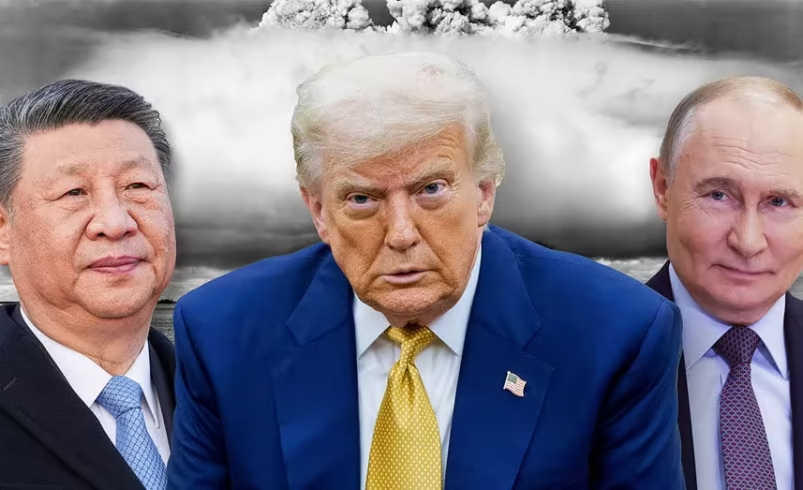Russia and China Escalate Nuclear Tensions on Hiroshima Anniversary
- August 6, 2025
- 0

Wednesday marks the 80th anniversary of the Hiroshima bombing, a pivotal moment in history when the U.S. deployed the first nuclear bomb over the Japanese city. This event, followed by the Nagasaki bombing three days later, resulted in approximately 200,000 deaths and marked the end of World War II. However, it also initiated a nuclear arms race and established the doctrine of deterrence through mutually assured destruction.
Despite decades of lessons learned, nuclear warfare remains a significant threat today. Rebeccah Heinrichs, a nuclear expert at the Hudson Institute, emphasizes that for the first time, the U.S. faces two nuclear peer adversaries: Russia and China. Both nations are advancing their nuclear capabilities and collaborating against Western interests, particularly targeting the U.S.
The current nuclear threat environment is more complex than during the Cold War when the U.S. only contended with the Soviet Union. Heinrichs notes that both China and Russia are investing heavily in nuclear capabilities while pursuing aggressive geopolitical goals. This escalation raises concerns about potential conflicts involving nuclear weapons.
Earlier this year, the Bulletin of Atomic Scientists advanced the “Doomsday Clock” to 89 seconds to midnight, indicating unprecedented risk levels. The clock’s adjustment reflects Russia’s non-compliance with international treaties amid its ongoing conflict in Ukraine and China’s expanding nuclear arsenal.
The Bulletin criticizes the U.S. for expanding its nuclear arsenal and adopting a posture that suggests limited nuclear use is manageable. Heinrichs counters this view, arguing that deterrence remains crucial in preventing nuclear warfare.
Heinrichs stresses that the threat lies not in the number of warheads but in how nations like Russia threaten to use them for coercion. She advocates for strengthening deterrence by enhancing U.S. capabilities and expanding influence in regions like the Indo-Pacific to counteract Russian threats effectively.